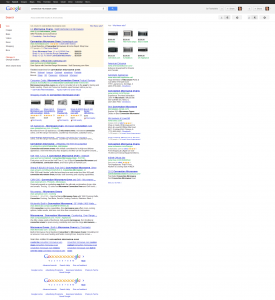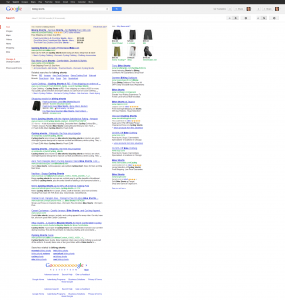Recently, Jeffrey Katz, CEO of Nextag accused Google of stacking the search deck. Amit Singhal, Senior Vice President, Engineering responded here.
While I think Mr. Katz raises some very valid concerns, I’m not convinced that everything he claims is accurate.
First, it’s important to distinguish paid search advertisements from organic results. In an nutshell, with paid search advertisement advertisers pay Google to list their product/services. Conversely, at least according to Google, you can’t pay Google for visibility within organic results.
Mr. Katz claims that Google:
has used its position to bend the rules to help maintain its online supremacy, including the use of sophisticated algorithms weighted in favor of its own products and services at the expense of search results that are truly most relevant.
Is he talking about Google’s paid search algorithm or its organic algorithm?
If we assume he’s talking about paid search, I would guess he might be able to come up with some concrete examples of paid Google ads for Google products performing better than competitor products. If he’s talking about organic results, I hope he has some pretty strong evidence of quid pro quo cash for rankings. Otherwise, it sounds more like sour grapes.
Let’s take a look at two examples that Katz references:
Search: [convection microwave oven]
Search: [biking shorts]
The only thing that’s immediately apparent to me is that there are more paid listings than there have been in the past. Is this a bad thing? I don’t know. Each of these searches seem to have pretty strong commercial intent. In other words, searchers are looking for these products.
Does Katz take issue with the prominence of these shopping results?
To me, this seems like the same problem folks have been complaining about for years: Google makes money (a whole lot of money) for its advertising space, just like everyone else on the web. They’re just better at it…
As Singhal says, if you don’t like/trust Google, don’t use it.

